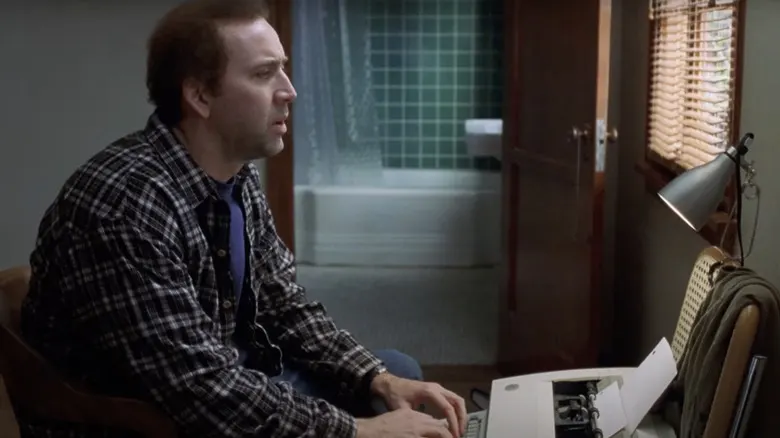To Challenge & Demonstrate His Truth
My thing with Charlie Kaufman’s movies is that one day I love them; the next I think they are cerebral and pretentious. Most importantly, I don’t remember them. Perhaps this results from the lack of a traditional narrative structure. On the positive, you can watch them over and over again - in case you so desire. The downside? Word of mouth is kinda problematic. If you saw Being John Malkovich more than a few years ago, I dare you to recount the story beyond the cool concept of the portal into Malkovich’s head. BTW - do you remember how the POV shifts from John Cusack’s character to Cameron Diaz, to Catherine Keener, to … a monkey? Probably not.
KAUFMAN’S BAFTA SPEECH
However, to even discuss Kaufman’s films in these terms would be missing the point. He doesn’t care whether I or you or anyone likes or remembers his films. As long as they challenge you - and the status quo. Kaufman is also known for writing Eternal Sunshine Of The Spotless Mind, and notorious for his 2011 BAFTA talk, which went viral in the screenwriting community. In the aftermath, countless wannabe screenwriters flooded the social media to renounce the Robert McKees of this world, inspired to stop learning, and write instead from their inexperienced, uneducated gut. Fine, if you have the time and resources to reinvent the wheel and learn all the principles by trial and error. Not so much if you want to get hired to write plot-driven stories. And let’s face it, not everyone can rely on a mind as exquisite as Kaufman’s.
HYPOCRITICAL OATH?
In the Bafta lecture, Kaufman hit the nail on the head when he shared the pain, the insecurity, the frailty and overall humanity of the writer who bares his soul. I totally agree with him that all great writing reveals the artist in a vulnerable honesty - but I don’t believe this mutually excludes a thorough understanding of the craft, the techniques and age old principles of dramatic writing.
Kaufman’s speech felt divisive in the way he derided successful cinema aimed at the mainstream. He also contradicted himself. One moment he goes: “this is my goal. My own Hippocratic Oath – I do not want to harm.” The next he expresses his hatred for writers who follow ‘rules’ to please an audience: “you are a waste of time as a human being. It will be an ugly thing for me to say. It will be intended to hurt you.”
In his screenplays, Kaufman doesn’t preach. Adaptation is a fine example of how the writer instead uses story to demonstrate his truth.

ROBERT MCKEE’S VOICE OVER RANT
If you have ever attended a story seminar with Robert McKee, you will agree that the voice over rant in Adaptation rings scarily true. Brian Cox embodies the guru like a master, when he rants and swears, and calls the use of voice over in scripts ‘flaccid writing’.
Adaptation is known - and loved - among screenwriters for its brilliant complexity and - much like the Bafta talk - for the statements it makes about the art. The film is in fact Kaufman’s cinematic creed through which he demonstrates some of the points in his Bafta speech. He subverts broadly accepted screenwriting truisms, and focuses instead on how - in his mind at least - the pure artist grapples with the mundane aspects of turning life into art, and vice versa. While the entire film is delightfully complex and layered, this simple scene illustrates Kaufman’s sense of humour, and the genius to turn those dreaded rules on their head - successfully.
Read Adaptation - Screenplay
Read Charlie Kaufman’s BAFTA Lecture Transcript
Karel Segers
Karel Segers wrote his first produced screenplay at age 17. Today he is a story analyst, script editor and producer with experience in rights acquisition, script development and production. His
screenwriting classes have trained writers in Australia, Europe, Asia and the Middle East, and his clients include international award-winning filmmakers as well as three Academy Award nominees.
Karel is the founder of
The Story Department and he ranks in the world's Top 10 of most influential people for screenwriting on Twitter.